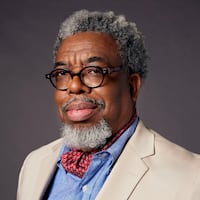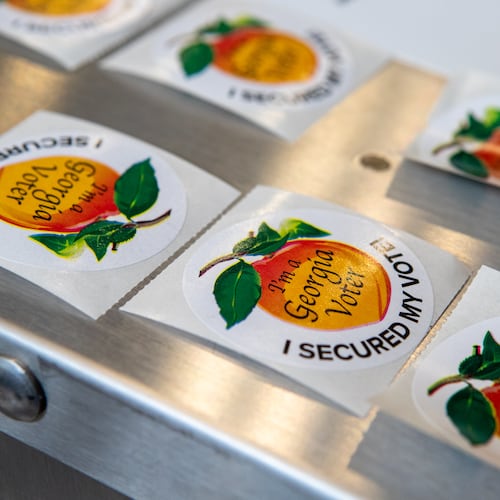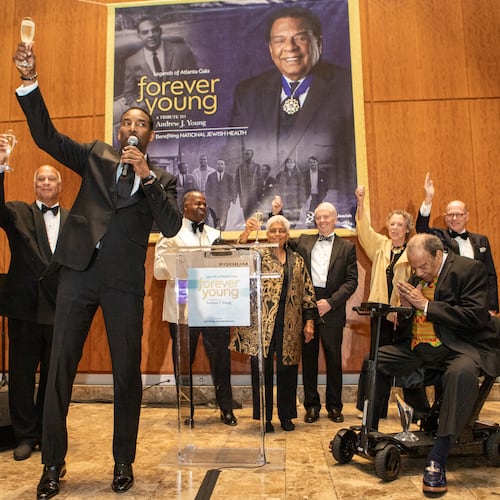CHARLOTTE, N.C. – Up until now, Darryl E. Kelson had never donated to nor participated in a presidential election campaign. He never saw the need.
“I am not a knock-on-the-doors type of person,” said Kelson, a retired delivery service dispatcher, who now spends his time deejaying in Charlotte.
“I love that the Democrats moved Kamala Harris to the top of the ticket. At first, I was apprehensive because I didn’t think the country would embrace her. Now I have high hopes.”
Today, Kelson is contributing regularly to the campaign of Vice President Kamala Harris and her running mate, Minnesota Gov. Tim Walz. On Election Day, he will be one of thousands of disc jockeys spinning near polling sites as part of a national program to encourage voter participation.
“The stakes are higher,” he said. “North Carolina is in play.”
Eyeing the Tar Heel State
According to a new poll released Sunday by progressive research firm YouGov Blue, Harris has pulled even with Trump in North Carolina, a state he carried in 2016 and 2020.
The survey, which sampled 802 registered voters on behalf of Carolina Forward, shows the candidates deadlocked at 46% among likely voters in the state, with a margin of error of 3.9 percentage points. The toss-up contest shows why Harris and Trump will appear in the Tar Heel State this week.
Harris is scheduled to speak Friday in Raleigh, where she is set to share details of her economic agenda. Trump was in western North Carolina Wednesday for a rally in Asheville.
Hours before the doors opened Wednesday, in a line that stretched several blocks, thousands of Trump supporters lined up to get inside the Harrah’s Cherokee Center in downtown Asheville. Many of them camped out overnight to secure a spot inside the 2,400-seat auditorium. Even so, most of the crowd was not allowed in.
Adjacent to the center, in the parking lot of Basilica St. Lawrence, a Trump-wrapped Cadillac Escalade with Florida plates displayed 10 giant Trump and American flags.
The crowd inside and outside the auditorium was decidedly white, and of the thousands in line fewer than five were Black. Most of the Black people seen along the streets were vendors selling MAGA hats and merchandise, including some racist and sexually offensive T-shirts targeting Harris.
Toward the back of the line, John Mompoint, with dreadlocks flowing down his back, waited for his chance to get in. He is 36, Black, and lives in nearby Weaverville, a rural town of fewer than 4,000 people, only 11 of whom are African American.
Mompoint said he believes in Trump’s policies and doesn’t believe all of the polling that suggests that Harris has caught him.
Aside from the Carolina Forward poll, the Trafalgar Group’s GOP-funded poll has Trump ahead 49-45. That poll was released at the same time as the YouGov poll. A third poll, commissioned by The Carolina Journal, finds Trump with a three-point advantage, 47-44.
“Trump is going to win North Carolina, because a lot of people are going to come out and support him, especially in the rural areas,” Mompoint said. “There are people who support Kamala, but only in the urban areas. Not down here.”
Battleground fight
State Sen. Dan Blue, the North Carolina Senate Democratic leader, said voters in the state are looking for a government that works for them. They are seeing that in Harris, he said.
“I see a level of enthusiasm, opportunity, anticipation, and excitement that I haven’t seen in a long time. People are coming out of the woodwork,” said Blue, who represents Wake County and the state capital of Raleigh.
“They want a vision toward the future instead of messages that scare people and make everybody hate each other. Harris and Walz are equipped to convey that message. North Carolina is clearly a state that Harris-Walz can win.”
Along with Georgia, Wisconsin, Pennsylvania, Nevada and Arizona, North Carolina is a state both parties believe is theirs for the taking.
The hopes of a Democratic upset became more realistic when Harris moved to the top of the Democratic ticket on July 21. That scrambled the race for the state and its 16 electoral votes, which Trump seemed positioned to win against President Joe Biden.
Jarvis Hall, professor of political science at North Carolina Central University in Durham, said that if Biden stayed in the race, Trump would have likely won the state.
The math changed when Harris emerged.
“North Carolina is still viewed as a swing state that both parties see value in,” Hall said. “Republicans know they can’t win the presidency without it and the Democrats are trying to steal it. That is why you see people still coming to North Carolina.”
Since 1968, the state generally voted Republican during presidential elections. Before Barack Obama won the state in 2008, the last Democratic presidential nominee to take it was Jimmy Carter in 1976.
Credit: AP Photo/Jae C. Hong
Credit: AP Photo/Jae C. Hong
Obama lost North Carolina to Mitt Romney in 2012. Four years later, Trump beat Hillary Rodham Clinton among North Carolina voters by 3.6 percentage points. He followed up in 2020 by beating Biden by a 1.3-point margin.
North Carolina’s political landscape has evolved over the past few decades, just as the state has.
North Carolina’s diverse economy, which includes strong banking, technology and agriculture sectors, is fueled by some of the South’s biggest and most prestigious colleges, including the University of North Carolina, North Carolina State University, Wake Forest University and Duke University.
It is the home of 10 active Historically Black colleges and universities, including North Carolina A&T State University, the largest HBCU in the nation.
With that comes a diverse and highly educated workforce, primarily situated along the I-85/I-95 corridor, which stretches through Raleigh, Durham, Greensboro, Winston-Salem, and Charlotte.
Like Georgia, North Carolina’s rapidly growing urban areas are turning blue and liberal, while rural outlying regions in the eastern, southern and western parts of the state remain ruby-red, conservative and white.
This is why the state can support Republican presidential candidates while electing seven Democratic governors in the last eight gubernatorial elections.
“North Carolina is a purple state,” Blue, the state Senate Democratic leader, said. “The state has been rapidly changing with newcomers. All of the stuff that you see happening in Atlanta and Georgia is happening here.”
Down-ballot races
In addition to the presidential election, North Carolina also has a hotly contested race to replace Roy Cooper, the popular, term-limited governor who was on Harris’ vice-presidential shortlist.
Democrat Josh Stein is facing off against far-right Lt. Gov. Mark Robinson, a Black Republican who has received heat for extremist rhetoric, including recent comments at an eastern North Carolina church where he told a congregation that “some folks need killin’.”
Robinson will join Trump in Asheville on Wednesday.
Further down the ticket is Michele Morrow, the Republican nominee campaigning against Democrat Mo Green to lead K-12 public education in North Carolina. Morrow filmed a video, after attending the U.S. Capital riot on Jan. 6, 2021, urging then-President Trump to put “the Constitution to the side” and use the military to stay in power.
She also called for the public execution of Barack Obama.
“It is dicey here in North Carolina. The lieutenant governor is ultra-MAGA, and the candidate for superintendent of public instruction is nuts,” said Tanya Wiley, a project manager in Charlotte. “What gives me anxiety at the state and federal levels is what happens to us if these people get in? North Carolina has put up strong candidates against them, but it looks scary.”
The same Carolina Forward poll shows both Robinson and Morrow currently losing their races.
Passing the baton
Devin Freeman, a 23-year-old senior at NCCU majoring in political science, said as a community organizer he has seen renewed excitement since Harris declared her candidacy.
“We see a new wave of organized and energized people — younger people coming together and voting for Kamala Harris,” said the Winston-Salem native, whose work in politics has earned him a spot as a state delegate to next week’s Democratic National Convention in Chicago.
“We have ramped up the infrastructure throughout North Carolina to support the Harris team. Everything you are seeing on a national level you are seeing in North Carolina by grassroots organizations,” he said.
Freeman said that unlike Biden, Black and young voters see themselves in Harris, who also attended a Black college.
“A lot of young voters felt that with Joe Biden, we were looking for a change. What would it look like to pass the baton?” Freeman asked.
“The mood wasn’t terrible, but stagnant. She brings a new atmosphere and excitement, and students are buying into the shift of narrative, leadership, and what works for America. It feels like ‘08 all over again.”
Derek Partee voted for Obama in 2008 and 2012. He plans to vote for Harris in 2024.
A registered Republican and former Huntersville town commissioner, Partee calls himself an “old-school Republican,” who has been pushed out of the party by MAGA extremists.
“I am a Black Republican who voted for Obama. I did not throw away my ethnicity when I became a Republican,” Partee said. “I am 72. What the hell are they going to do to me anyway?”
Partee said he is being practical and sees the writing on the wall. Harris, he said, has a great chance of winning North Carolina. He also sees parallels to the 2008 election of Obama, who represented something new and fresh.
He sees that in Harris and believes Trump would have steamrolled the state if still facing Biden.
Credit: TNS
Credit: TNS
“There is a very apathetic voting attitude in our community if there is not an exciting candidate at the top of the ticket,” Partee said. “It is the Obama effect. The energy I am seeing is phenomenal. The Republicans here in North Carolina don’t have that same energy.”
Last weekend, Kim Ratliff, a former Mecklenburg County Commissioner in Charlotte, was working at a back-to-school voter-registration drive.
She had to turn one man back. He was already registered to vote but was confused by the process and not sure if he needed to register again. He didn’t want to miss an opportunity to vote for Harris.
“That tells you that people are excited,” Ratliff said. “Harris can pull it off, but we can’t take anything for granted and get comfortable. There is still a lot of work to do. We have to make sure we vote, and we have to make sure we take every eligible voter with us. No excuses this time.”
About the Author
Keep Reading
The Latest
Featured






